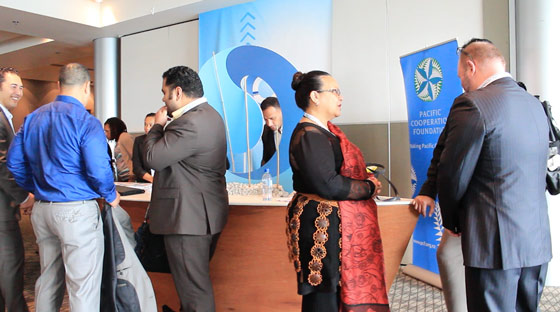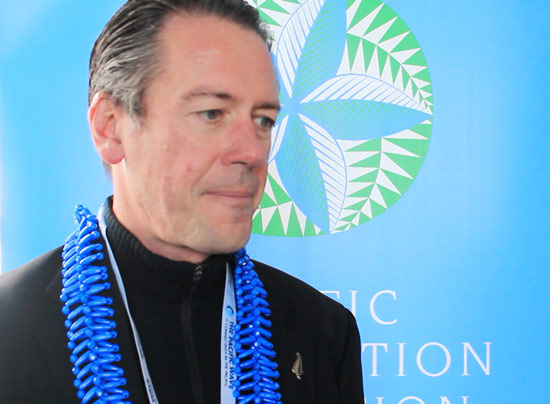
Alistar Kata
AUCKLAND (Pacific Media Watch): Information and communications technologies (ICTs) could change the media landscape in the Pacific region.
Connectivity in the Pacific was the focus of the 2015 Pacific Wave Conference, hosted by the Pacific Cooperation Foundation (PCF) in Auckland last week.
The conference gathered entrepreneurs, businessmen, media associates and ICT experts to discuss the links between connectivity and business and economic growth in the region.
Freelance news producer and MC of the event Sandra Kailahi said it was "imperative" that these systems provided "reliable, accessible and affordable" internet for everyone, but particularly media.
"It will allow the likes of Niue Broadcasting Corporation who spend all night uploading its bulletin to YouTube to have a better and more prompt access to diaspora living around the world," she said.![]()
Kailahi said Niueans, for example, could find out what was happening in their country "almost instantaneously".
"It will allow online media the opportunity to interact with their customers whether it is in the Islands or abroad a lot quicker and perhaps the opportunity to try different mediums," she said.
More in-depth hopes
Kailahi also hopes new technologies will allow journalists to do more in-depth reporting.
She said the changes would mean journalists in the Pacific "can access talent anywhere in the world and the appropriate footage or images without worrying about bandwidth".
"There’s the opportunity for the different Pacific Island's media to share footage and information because it wouldn’t take so long to download or upload material and it wouldn’t cost the earth to do so," she said.
"This is particularly important for smaller media outlets that don’t have big- or any budget".
Business correspondent for Radio Live Andrew Patterson said people were dealing with a world that was becoming increasingly "more and more connected".
"The question becomes, if you are not connected, how much of a disadvantage is that going to place you at?"
He said, if there was a lack of connectivity, "I think increasingly it's going to almost consign you to be living in another world".
With New Zealand being a major neighbour to the Pacific nations, Patterson said it was become "increasingly incumbent upon New Zealand to act now, otherwise the problem is going to become even more worse."
Citizen journalism
He also believes the shift in media landscape will foster the area of "citizen journalism".
"We are entering this world now where everybody is effectively able to be a correspondent, everybody is able to have a view," he said.
"So you get into the whole area of citizen journalism, people will be able to become much more engaged in local issues and I think this connectivity is just going to change all of those accepted norms that have existed in the past."
In terms of Pacific media providing competition for media in New Zealand, Australia and the Pacific, Kailahi said the "basics" needed to be cemented first.
"Right now, that cannot happen because internet is too expensive and slow," she said.
"There is no reason why the Pacific Islands and the region as a whole cannot compete within the New Zealand and Australian markets."
But Kailahi said there could be an increase in the number of media outlets providing a service that caters for people in the islands and the diaspora living overseas.
This work is licensed under a Creative Commons Attribution-NonCommercial 3.0 New Zealand Licence.




